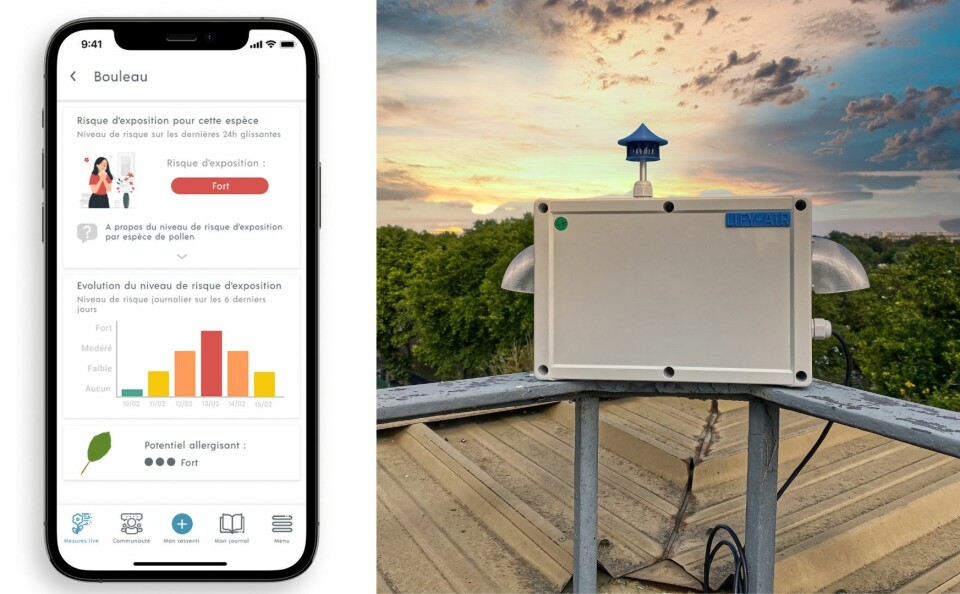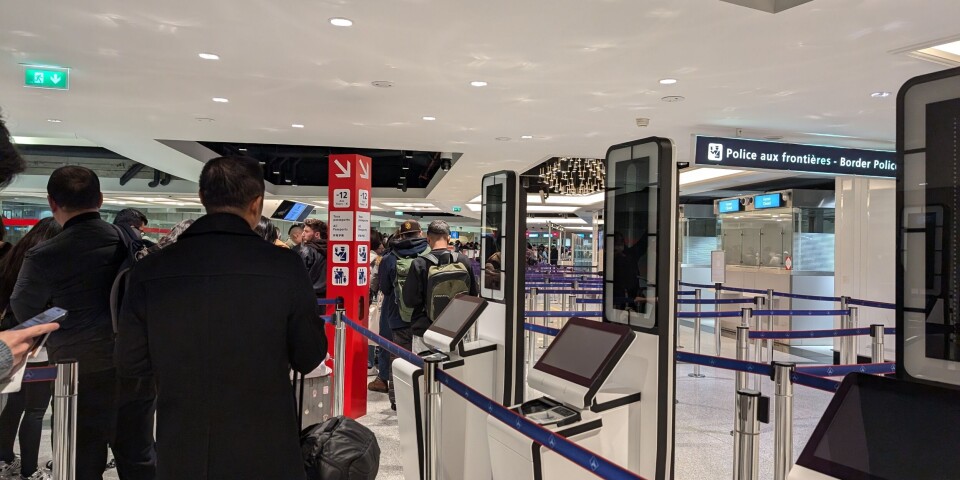-
Almost all of France is now on maximum alert for pollen allergies
Only the north and north-west have escaped the highest risk level so far
-
Large increase in maximum pollen alert levels in France
There are now 30 departments on high alert, up from eight last week
-
High risk of allergies in southeast France
The national air monitoring network has issued advice for people allergic to alder, hazel, cypress pollen
Pollen sensors show real-time data to hay fever sufferers in France
The devices detect fine particles and can be linked to a phone app, which will warn you when pollen spikes

A hay fever sufferer is offering a way to detect pollen in real time and give accurate readings on allergy risk in any local area.
Jérôme Richard co-founded the startup Lify Air in 2018 and hopes to install around 1,000 sensors around France.
Pollen allergies are an increasing problem but there are few devices capable of detecting pollen in real time.
Read more: Pollen allergies in France worse this year and set to intensify
Around 30% of people in France have allergies today, compared to around just 3% in the 1970s. This could rise to 50% of the population by 2050.
A personal battle
Mr Richard said their product was born out of bitter experience: “I am allergic to pollen and so is my family, so the idea came about from trying to combat a personal issue.
“For many years, I was unable to find information on pollen that allowed me to anticipate when I would have allergies.
No real-time information
“I started to research why this could be and I discovered there was no pollen detection system that operated in real time – the existing system has a delay of eight to 10 days.
“So we either had information with this big delay, or we had projections based on historic trends.
“These projections do not take into account the increase in the amount of pollen or other factors.”
Type of pollen detected
Mr Richard said he was lucky in 2019 to find a research laboratory, LPC2E - CNRS, that had developed a technology he thought might work in detecting different pollen.
“They were actually working on a way of detecting fine particles. We did some tests and saw that we could get this detector to light up in different ways depending on which pollen it was detecting.
Read more: Plan against allergenic ragweed launched in south of France
“We worked for around 18 months to two years on developing the technology to make our pollen sensor. The adventure started like that.
“We have since been working on recalibration, as well as finessing and improving it.”
Need mairies to install sensors
The sensors are most effective at detecting pollen within a range of two to five kilometres.
Mr Richard said there are currently only 70 to 75 pollen detection points in the country.
“One challenge we have is expanding this network throughout France by setting up our sensors.”
The company will work with local prefectures or mairies to install them in thousands of towns.
“We have almost 120 sensors set up, but we need many more,” Mr Richard said.
He explained that there is no one place in particular that is more affected by pollen allergies in France, with urban and rural areas all impacted.
Download app
Lify Air has developed a phone app to work alongside its sensors.
Users can download the app to check if there is a sensor nearby and see the real-time pollen data it generates, giving them an idea of allergy risk in their area.
Covering France with the new sensors is just the beginning, Mr Richard said.
“Pollen is a global problem and from next year we want to go international.
“The sensors cost between €3,000 to €3,200, so it is not a major investment for local authorities. They are quite easy to develop and set up.”
Related articles
93 French departments on red alert for pollen risk, to last weeks
Allergies in France: Do anti-Covid masks protect against pollen?
French startup creates app to show personalised medicine side effects
























